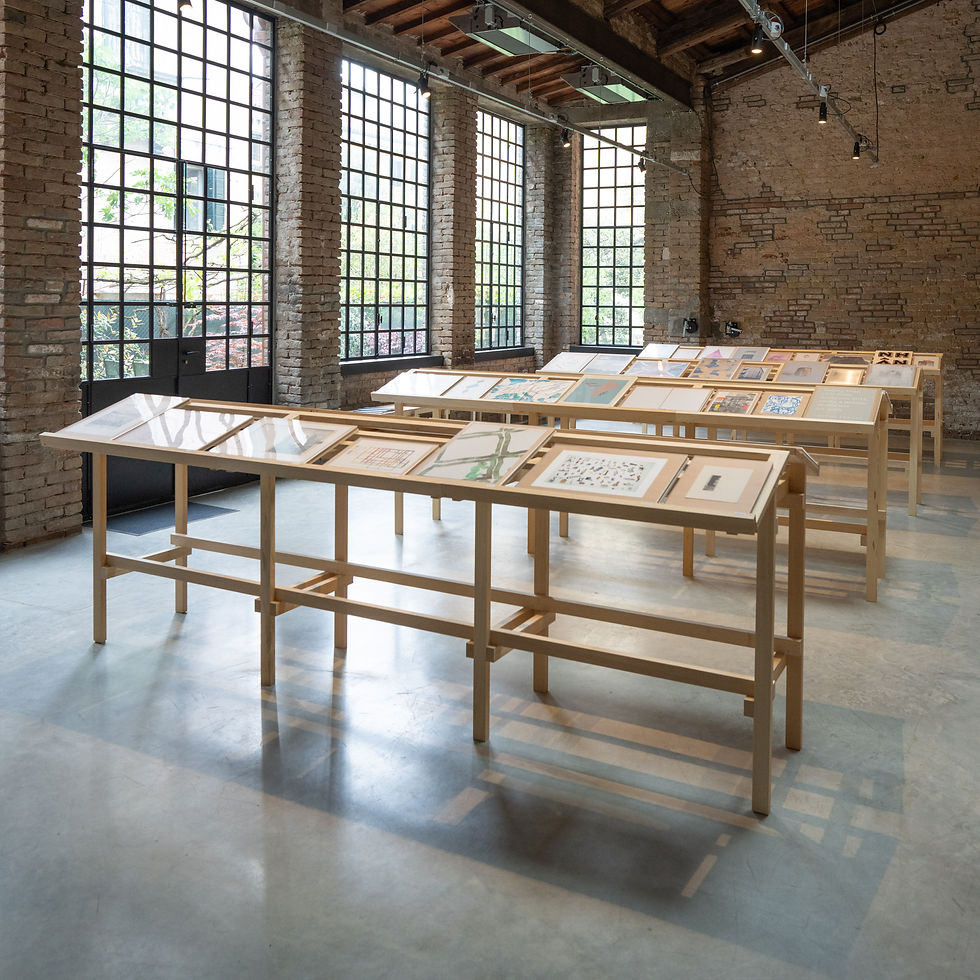VLATKA HORVAT : BY THE MEANS AT HAND // CROATIA NATIONAL PAVILION
April 20 - November 24, 2024

Vlatka Horvat: By the Means At Hand
Croatian National Pavilion at the 60. Art Biennale
Artist: Vlatka Horvat
Curator: Antonia Majaca
Commissioner: The Ministry of Culture and Media of the Republic of Croatia
On the vernissage days from April 16 to 19: open 10am-7pm
Open Tuesday to Sunday,
20/04 > 30/09: 11 AM - 7 PM
01/10 > 24/11: 10 AM - 6 PM
Closed on Mondays except on Biennale Mondays
Address: Fàbrica 33, corner of Calle Larga dei Boteri and Calle Ruzzini, Cannaregio 5063
Free admittance
Special closing event: Friday, November 22, 2024, 5 PM
Join us for an end-of-biennale conversation between artist Vlatka Horvat and curator Antonia Majaca as they reflect on "By the Means at Hand" - Croatia's contribution to the 60th Venice Biennale. The discussion will explore how the project transformed the pavilion into a hub of continuous exchange, where artworks traveled through informal networks of friends and colleagues.
Drawing from their extensive dialogue featured in the forthcoming publication, Horvat and Majaca will discuss the project's reimagining of artistic exchange, community, and belonging in our current moment of ecological crisis and rising nationalism.
The comprehensive publication documenting the project will be available from Archive Books in December 2024.
Website: Croatian Pavilion 2024
Engaging with the theme of Adriano Pedrosa’s main exhibition for La Biennale di Venezia, “Stranieri
Ovunque – Foreigners Everywhere,” Vlatka Horvat’s project for the Croatian Pavilion, curated by Antonia Majaca, will exist as an accumulative exhibition of artworks by a wide-ranging group of international artists living “as foreigners,” reflecting on questions and urgencies of the diasporic experience.
This exhibition will be generated through a social and performative exchange taking place over the course of the Biennale Arte 2024. Horvat will invite artists living in diaspora all over the world to engage in a series of reciprocal exchanges of artworks and other materials, all of which will be sent between Venice and other places by improvised means – via various friends, travelers, and strangers who will be enlisted as informal couriers for the project.
The title of the project – By the Means at Hand – refers to the improvised transport systems whereby
individuals activate informal networks of friends, acquaintances, and even strangers to deliver letters, parcels, documents, money, and other material goods to family members and others who live in cities or countries far away. While such practices are born out of social dispersal, migration, and displacement, the networks they give rise to build effectively on wider principles of solidarity, shared struggle, mutual support, and friendship – factors that the project emphasizes as prerequisites for co-existing with others, and as key elements in the toolkit for those living “in foreign lands.”
By the Means at Hand also points to a wide range of broader themes such as alternative logistics, the spontaneous production of social relations, informal and gift economies, and the idea of trustfulness. On a subtler, yet crucial, infrastructural level, the project takes off from a recognition of the state of emergency when it comes to the climate crisis, and the substantial environmental footprint of institutionalized modes of production, transportation, and presentation of contemporary art. The project’s improvisatory system of delivering artworks to and from Venice will forgo the formal transport system, and its main installation architecture will use recycled materials.
Hugo Gendinning. Courtesy Croatia Pavilion






